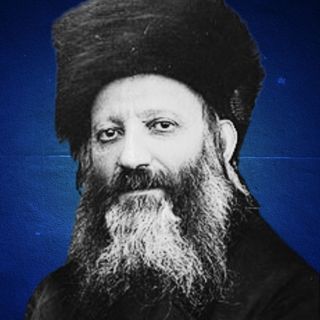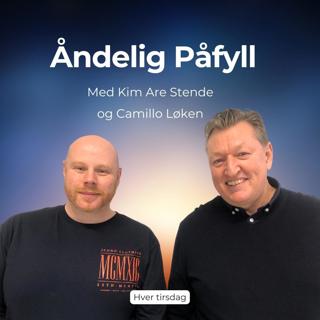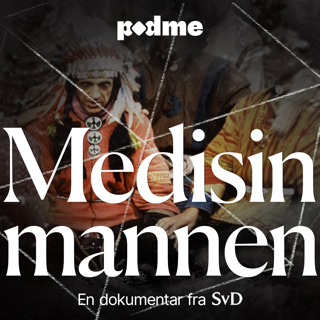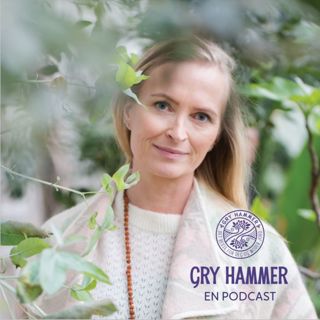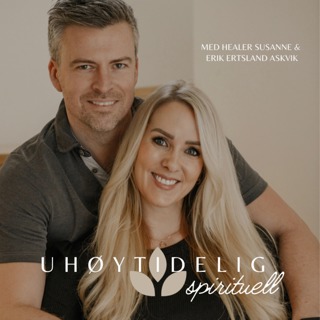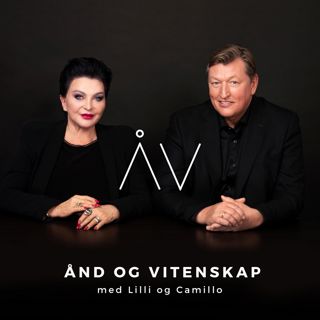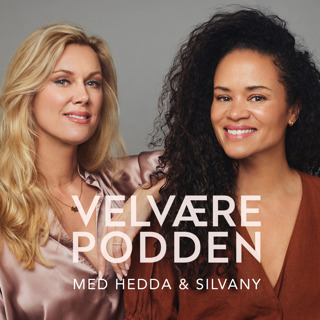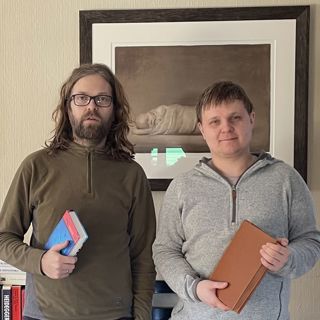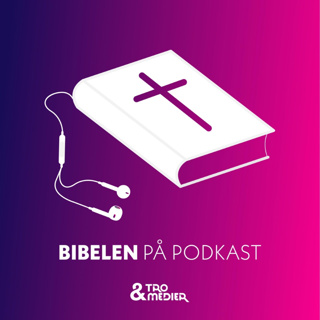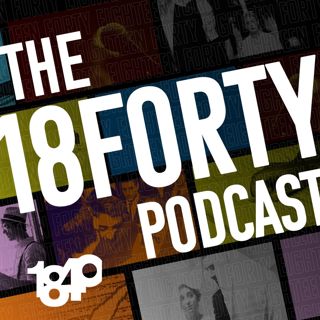
FROM THE VAULT: Samuel G. Freedman: Can Jew vs. Jew Ever Become Jew with Jew?
While we return to Jewish Denominations next week, enjoy this ever-necessary 2020 conversation about Jewish infighting, division, and unity—pulled from the 18Forty vault. In this episode of the 18Forty Podcast, we sit down with Professor of Journalism at Columbia and author, Samuel G. Freedman, to talk about dissent not as a cause of ugliness and divide, but of beauty and unity.Some would say that disagreement isn’t a bug of the Jewish community, but a feature. We have a rich history of debate in the Talmud and haven’t been able to shake this dubious quality even in the modern day United States. The internet has only exaggerated this, and while one can argue for the benefits of dissent, the fact that Jews seem embroiled in a perpetual state of debate remains.Is debate a healthy state of mind for our community?Should we be looking to avoid debate or embrace it?Does dissent cause only divide or can it be used as a means of understanding the other members of our community?Tune in to hear Samuel discuss the roles that individual Jews play in the larger debate that is the Jewish community.Become a supporter of this podcast: https://www.spreaker.com/podcast/18forty-podcast--4344730/support.
9 Jun 202445min
![Marc B. Shapiro: Where Does Orthodox Judaism Come From? [Denominations 4/5]](https://cdn.podme.com/podcast-images/D79089FBEF78B78B9B1A2A8AFD27F6A1_small.jpg)
Marc B. Shapiro: Where Does Orthodox Judaism Come From? [Denominations 4/5]
This series is sponsored by Joel and Lynn Mael in memory of Estelle and Nysen Mael.In this episode of the 18Forty Podcast, we talk to author and historian Dr. Marc B. Shapiro about the blurry borders that distinguish Reform, Conservative, yeshivish, Modern Orthodox, and the many other Jewish sects from one another.We take today’s Jewish denominational and cultural differences for granted, but they were not inevitable. Moments in history formed our sects, and Dr. Shapiro helps us unpack them. In this episode we discuss:How did the Conservative movement diverge from Orthodoxy?Where did the “yeshiva world” come from?How have Jews historically maintained friendship despite denominational divisions?Tune in to hear a conversation about Jews’ tangled relationship between ideology and lived experience. Interview begins at 13:36Dr. Marc B. Shapiro holds the Weinberg Chair in Judaic Studies at the University of Scranton. Marc received his PhD from Harvard, and he is the author of numerous books, articles, and reviews, including Between the Yeshiva World and Modern Orthodoxy, The Limits of Orthodox Theology, and Changing the Immutable: How Orthodox Judaism Rewrites Its History. References:Halacha HeadlinesBetween the Yeshiva World and Modern Orthodoxy by Marc B. ShapiroSaul Lieberman and the Orthodox by Marc B. ShapiroChanging the Immutable by Marc B. ShapiroMarc B. Shapiro on The Seforim BlogJudith Berlin Lieberman: Autobiography and Reflections edited by Menachem Butler and Abraham LiebermanA Few Good MenToras HaNazir by Rav HutnerIggerot Malkhei Rabanan by Marc B. ShapiroOrthodox Jews in America by Jeffrey S. GurockReading Jewish History in the Parsha with David BashevkinAll ParshaThe Book And The Sword by David Weiss HalivniBecome a supporter of this podcast: https://www.spreaker.com/podcast/18forty-podcast--4344730/support.
4 Jun 20241h 30min
![Jack Wertheimer: A New American Judaism? The Sociology of Jewish Practice [Denominations 3/5]](https://cdn.podme.com/podcast-images/D79089FBEF78B78B9B1A2A8AFD27F6A1_small.jpg)
Jack Wertheimer: A New American Judaism? The Sociology of Jewish Practice [Denominations 3/5]
This series is sponsored by Joel and Lynn Mael in memory of Estelle and Nysen Mael.In this episode of the 18Forty Podcast, we talk to Jack Wertheimer, a professor of American Jewish History at JTS, about the radical transformations of American Jewish practice over the last century.We can’t understand the Jewish People without a sobered look at what happens in our synagogues, homes, and communities. We can talk about a movement’s ideological ideals, but amid those discussions we cannot ignore the on-the-ground realities of a community’s practice. In this episode we discuss:How does a Jewish movement’s "lived religion" differ from its stated ideals?What is the cost of radical inclusivity?What misconceptions do Orthodox and non-Orthodox Jews have about each other?Tune in to hear a conversation about what Judaism means for us in our current time. Interview begins at 28:28.Dr. Jack Wertheimer is a leading thinker and professor of American Jewish History at the Jewish Theological Seminary of America. He is the former provost of JTS, and was the founding director of the Joseph and Miriam Ratner Center for the Study of Conservative Judaism. Jack has written and edited numerous books and articles on the subjects of modern Jewish history, education, and life. He won the National Jewish Book Award in the category of Contemporary Jewish Life in 1994 for A People Divided: Judaism in Contemporary America. References:“Sometimes Mashiach Is Not the Solution” by Aaron Lopiansky“Politics and the Yeshivish Language” by Cole S. AronsonThe New American Judaism by Jack WertheimerA People Divided: Judaism in Contemporary America by Jack WertheimerSliding to the Right: The Contest for the Future of American Jewish Orthodoxy by Samuel C. HeilmanContemporary American Judaism: Transformation and Renewal by Dana Kaplan“What Jewish Denominations Mean to Me” by David BashevkinMichtav Me'Eliyahu by Rabbi Eliyahu DesslerThe 18Forty Podcast: “Rabbi Dr. Haym Soloveitchik: The Rupture and Reconstruction of Halacha”“Shomer Yisroel” by Omek HadavarBecome a supporter of this podcast: https://www.spreaker.com/podcast/18forty-podcast--4344730/support.
28 Mai 20241h 40min
![Ammiel Hirsch: 'What Did We Do Wrong?' Peoplehood and the Reform Movement [Denominations 2/5]](https://cdn.podme.com/podcast-images/D79089FBEF78B78B9B1A2A8AFD27F6A1_small.jpg)
Ammiel Hirsch: 'What Did We Do Wrong?' Peoplehood and the Reform Movement [Denominations 2/5]
This series is sponsored by Joel and Lynn Mael in memory of Estelle and Nysen Mael.In this episode of the 18Forty Podcast, we talk to Rabbi Ammiel Hirsch, senior rabbi of Stephen Wise Free Synagogue and a leader of the Reform Movement, about the way Jewish Peoplehood is understood among the non-Orthodox majority of American Jews.Rabbi Hirsch is known in the Reform Movement and beyond for his decades-long staunch commitment to Jewish Peoplehood. We recorded this interview before Oct. 7, and especially considering Rabbi Hirsch’s leadership on issues related to Zionism, a follow-up conversation with him will follow shortly. In this episode we discuss:Where should the State of Israel fit into our priorities as a people? How has Reform Judaism course-corrected its views on Jewish Peoplehood over time?How can we be a unified people when we can’t always agree on who is a Jew?Tune in to hear a conversation about how we might improve the state of interdenominational relations.Interview begins at 19:50.Rabbi Ammiel Hirsch is a leader of the Reform Movement. He is the senior rabbi of Stephen Wise Free Synagogue and former executive director of the Association of Reform Zionists of America/World Union for Progressive Judaism, North America. He wrote two books: The Lilac Tree: A Rabbi's Reflections on Love, Courage, and History (2023) and One People, Two Worlds: A Reform Rabbi and an Orthodox Rabbi Explore the Issues That Divide Them (2003), which he co-authored with Rabbi Yaakov Yosef Reinman.References:One People, Two Worlds: A Reform Rabbi and an Orthodox Rabbi Explore the Issues That Divide Them by Ammiel Hirsch and Yaakov Yosef ReinmanThe Impostor by Avner Gold18Forty Podcast: “Altie Karper: When a Book Is Banned”“The Believer” by Armin Rosen“Dissent in the Reform Ranks” by Armin RosenThe Lilac Tree: A Rabbi's Reflections on Love, Courage, and History by Ammiel HirschThe Book of Jewish Values: A Day-by-Day Guide to Ethical Living by Joseph Telushkin“Who Can Be Called Rabbi?” by Gil Student“Shomer Yisroel” by Omek HadavarBecome a supporter of this podcast: https://www.spreaker.com/podcast/18forty-podcast--4344730/support.
21 Mai 20241h 22min
![Zev Eleff: Is This the End of American Judaism? [Denominations 1/5]](https://cdn.podme.com/podcast-images/D79089FBEF78B78B9B1A2A8AFD27F6A1_small.jpg)
Zev Eleff: Is This the End of American Judaism? [Denominations 1/5]
This series is sponsored by Joel and Lynn Mael in memory of Estelle and Nysen Mael.In this episode of the 18Forty Podcast, we begin our Denominations series by talking to Zev Eleff—historian, author, and the president of Gratz College—about the development of the denominations of Judaism we have in America today. We’ve been occupied for months with defending our right to be Jews in America, so perhaps this is the right time to return to considering the purpose of the Jewish lives we want to live. In this episode we discuss:How did America’s Jewish “denominations”—better termed “movements”—as we know them come to be?What have the different Jewish movements each contributed to American Jewish life?How can we get back to not just fighting antisemitism, but uncovering the meaning of our Judaism?Tune in to hear a conversation about how previous generations of American Jews have handled the issues that, to one degree or another, threatened to divide us. Interview begins at 49:36.Rabbi Dr. Zev Eleff is the president of Gratz College. Zev is the author and editor of nine books and more than 50 scholarly articles in the fields of Jewish Studies and American Religion, including Modern Orthodox Judaism: A Documentary History, Dyed in Crimson: Football, Faith, and Remaking Harvard's America, and Authentically Orthodox: A Tradition-Bound Faith in American Life. Zev’s research focuses on American Jewish history, sports, and Modern Orthodox history. References:Jonathan Haidt on The Daily ShowAmmi Hirsch on Campus Chaos“Failure Goes to Yeshivah: What I’ve Learned From the Failure Narratives of My Students” by David BashevkinAuthentically Orthodox: A Tradition-Bound Faith in American Life by Zev EleffThe Birth of Conservative Judaism by Michael CohenAmerican Judaism by Jonathan D. SarnaThe Jews of the United States, 1654 to 2000 by Hasia R. DinerJew Vs Jew: The Struggle For The Soul Of American Jewry by Samuel G. FreedmanThis Is My God by Herman WoukJewish Continuity in America by Abraham J. Karp18Forty Podcast: “Halacha as a Language”Become a supporter of this podcast: https://www.spreaker.com/podcast/18forty-podcast--4344730/support.
14 Mai 20242h 7min
![Rachel Goldberg-Polin: A Hostage’s Mother Fighting for His Freedom [Divergence 5/5]](https://cdn.podme.com/podcast-images/D79089FBEF78B78B9B1A2A8AFD27F6A1_small.jpg)
Rachel Goldberg-Polin: A Hostage’s Mother Fighting for His Freedom [Divergence 5/5]
Our Intergenerational Divergence series is sponsored by our friends Sarala and Danny Turkel.In this special episode of the 18Forty Podcast, we talk to Rachel Goldberg-Polin—whose son, Hersh, was kidnapped by Hamas and is still held hostage in Gaza—about heading into Passover with our loved ones still captive.Normally, Intergenerational Divergence feels like something of a choice. But now, Jewish families have been split apart by force. In this episode we discuss:How do we foster a continued connection to the members of our family who are missing?What difficult thoughts and questions will we bring to the Seder table this year?What does it mean to express hope via the Pesach Seder amid these bitter times? We hope wholeheartedly that this conversation about missing our children at the time of Passover will be made irrelevant and the hostages will soon return home. Interview begins at 7:17.References:“One Tiny Seed” by Rachel Goldberg-Polin“To the Boys in the Room” by Rachel Goldberg-PolinSefer HaMenucha on Mishneh Torah, Leavened and Unleavened Bread 8:2“A Prayer for Israel To Add to Your Pesach Seder” by Yosef Zvi RimonBecome a supporter of this podcast: https://www.spreaker.com/podcast/18forty-podcast--4344730/support.
20 Apr 202451min
![A Haredi Mother Sending Her Children To Serve [Divergence 4/5]](https://cdn.podme.com/podcast-images/D79089FBEF78B78B9B1A2A8AFD27F6A1_small.jpg)
A Haredi Mother Sending Her Children To Serve [Divergence 4/5]
Our Intergenerational Divergence series is sponsored by our friends Sarala and Danny Turkel.In this episode of the 18Forty Podcast, we talk to a Haredi mother named Dina about her two children who serve in the IDF, one of whom was critically wounded in the current war. Oct. 7 accelerated the already-complicated conversation about Haredi service in the army. Here, Dina shares with us her first-hand experience as a mother of chayalim. In this episode we discuss:What is it like being in the Haredi minority of IDF parents—and what is it like being one of the comparatively few IDF parents in the Haredi community? What is the experience of religiously raised soldiers remaining observant in the army?What is it like for a mother to send her son into battle?Tune in to hear a conversation about how we might, as Dina puts it, be machmir about how we relate to others. Interview begins at 7:16.References:“A Mother’s Miracle” by Sara BonchekBook Journeys are already back—and we're making them better than ever. We're partnering with Maggid Books, an imprint of Koren Publishers, to ship the books directly to you for an exclusive low price. Until April 24, all the books can be purchased and delivered to your home for $20 per book, or $60 for all three! Get your books and sign up on our website. Become a supporter of this podcast: https://www.spreaker.com/podcast/18forty-podcast--4344730/support.
16 Apr 20241h 8min
![Finding a Home for Haredi IDF Soldiers [Divergence 3/5]](https://cdn.podme.com/podcast-images/D79089FBEF78B78B9B1A2A8AFD27F6A1_small.jpg)
Finding a Home for Haredi IDF Soldiers [Divergence 3/5]
Our Intergenerational Divergence series is sponsored by our friends Sarala and Danny Turkel.This episode is sponsored by the incredible organization Osey Chail, a non-profit organization serving lone soldiers from Haredi and Hasidic homes who are serving in the IDF. In this episode of the 18Forty Podcast, we talk to four Haredi soldiers who served in the IDF about breaking from family and communal expectations by enlisting, and the subsequent Intergenerational implications. We also speak with Yael Ruzievich of the “adoptive family” of lone soldier David Mittelman, who was killed on Oct. 7. Hashem yikkom damo. In this episode we discuss:How do soldiers from the Haredi world relate to their parents after joining the IDF?What does the “adoptive family” of a Haredi lone soldier look like? How can we do more for those who make immense sacrifices to defend the Jewish People?Tune in to hear a conversation about how to handle divisive debates—such as Haredim enlisting for Israeli military service—as a unified Jewish family. First soldier interview begins at 16:47.Second soldier interview begins at 26:06.Interview with Yael Ruzievich begins at 50:46.Third soldier interview begins at 1:32:01.Fourth soldier interview begins at 1:40:45.Haredi soldiers are in a difficult place, often struggling with a lack of social and familial support, due to their community’s stance on army service. The organization Osey Chail fills this gap, supporting soldiers from Haredi backgrounds with kosher food, foster families, apartments, and unity events, among other programs. We’re honored to speak to Haredi soldiers who were part of Osey Chail, as well as families that adopted them.References:Shomer YisraelOsey Chailנגמר by Idan AmediDonate Dog TagsDonate Toward Mittelman ParkPesach is approaching—and Twillory has what you need. New customers can use the coupon code 18Forty to get $18 off of orders of $139 or more. (Keep an eye out for their one-of-a-kind Air Suits.)Become a supporter of this podcast: https://www.spreaker.com/podcast/18forty-podcast--4344730/support.
9 Apr 20242h 16min
